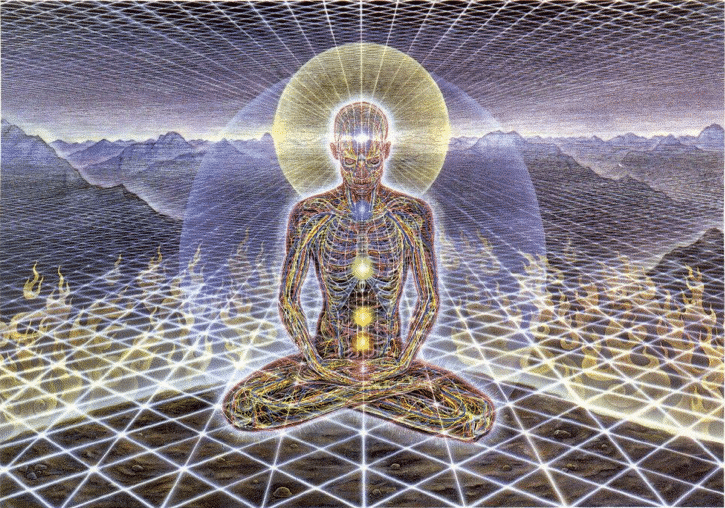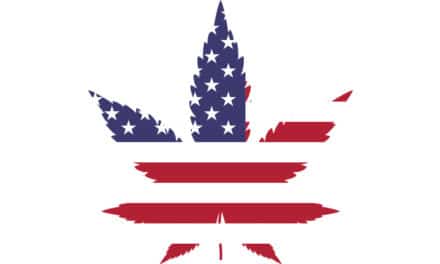
Mind-altering substances like psilocybin, ayahuasca, and ibogaine are making headlines thanks to research in recent years about their ability to treat physical, emotional, and mental ailments. But what exactly do you call them? | Image Source: Flickr User dantelo
Hallucinogen. Entheogen. Psychedelic. These words are used to describe a class of uniquely powerful consciousness-shifting substances, and while they are very similar, they do have some important and illuminating distinctions. Each of these terms describes the effects of consciousness alteration in a slightly different way, with some pointing to dangers and frivolity, and others describing revelation or even contact with the divine. The true meaning of psychedelic and these other words gives us a fascinating insight into how we relate to and understand these compounds and the visionary state they produce.
Psychedelic
The word psychedelic was coined by the pioneering British doctor Humphry Osmond in 1957, who was among the first medical professionals to use psychedelics like lysergic acid diethylamide (LSD) for addiction recovery treatment and the study of schizophrenia. Osmond chose this word based on the synthesis of two greek words- “psyche” meaning “mind,” and “delos” meaning “manifesting,” meaning the word psychedelic literally means “mind manifesting.” As Western doctors and scientists knew very little about how psychedelics worked or what exactly they did to the human brain in the 1950s, this catch-all term served very well for describing substances that didn’t just affect the body but manifested amazing and mysterious changes in consciousness itself. To this day, it is still the most popular and widely used term for describing consciousness-altering substances, and it remains the preferred term with many leaders in the field of psychedelic research.
Hallucinogen
The term hallucinogen is often used interchangeably with psychedelic, but they have important differences. Hallucinogen, of course, refers to substances which produce hallucinations, which are defined as perceptions of visible or other sensory phenomena that seem real but are not actually there. While some psychedelics can produce hallucinations, hallucinations themselves can come from a variety of causes including sleep deprivation, addiction withdrawal, mental disorders, and so on. The important distinction between a hallucination and a psychedelic experience is that hallucinations in and of themselves (such as in someone with schizophrenia) are disruptive and have little to no value to the person experiencing them, while psychedelic experiences (which may or may not include hallucinations) have the connotation of being inherently valuable in that they help to reveal hidden aspects of the true self, rather than being random. For this reason, most psychedelic advocates prefer the term psychedelic over hallucinogen.
The important distinction between a hallucination and a psychedelic experience is that hallucinations in and of themselves (such as in someone with schizophrenia) are disruptive and have little to no value to the person experiencing them, while psychedelic experiences (which may or may not include hallucinations) have the connotation of being inherently valuable in that they help to reveal hidden aspects of the true self, rather than being random. For this reason, most psychedelic advocates prefer the term psychedelic over hallucinogen.
Entheogen
While the term hallucinogen sits on the side of the spectrum most likely to devalue a psychedelic experience, the term entheogen sits on the opposite end, boldly declaring that psychedelic substances can quite literally bring you closer to the divine. The word “entheogen” was coined in 1979 by a team of ethnobotanists and mythologists including Gordon Wasson, Richard Schultes, Carl Ruck and others, and is derived from the greek words “entheos” meaning “full of the divine,” and “genesthai” meaning “to come into being.”[1. “Entheogens: What’s in a Name?” Gnostic Media, November 11, 2014, https://www.gnosticmedia.com/Entheogens_WhatsinaName_PsychedelicSpirituality_SocialControl_CIA.] This team wanted to create a word that was distinct from the term hallucinogen — due to its somewhat superficial and negative connotation — but different from the word psychedelic which had a strong stigma attached to it, especially right after the 60s.
The term entheogen, which translates to “bringing forth the divine within,” was a way to clearly describe consciousness-expanding substances that were part of the perennial traditions of shamanism and visionary journeying that cultures across the world have practiced since time immemorial. Infusing their new word with this sacred context helped to open up the discussion about how substances like LSD and psilocybin that rocked the 60s were not just dangerous party drugs, they actually were part of a visionary healing tradition that was as old as humanity itself. Today, while many psychedelic advocates use and appreciate the term entheogen, some scholars and researchers avoid the term because they are reluctant to attach ideas of divinity to the psychedelic state and would rather focus on the measurable therapeutic benefits of these substances rather than open a controversial can of worms.
What’s in a Name? Choosing Between Psychedelic, Hallucinogen, and Entheogen
The names that we have attached to consciousness-expanding substances like psychedelic, hallucinogen, and entheogen are important in what they say about our understanding of their value and proper use. When people use the term hallucinogen, there is little to no recognition in that word for the therapeutic and beneficial applications for these substances. On the other hand, those in line with the mystical traditions of the world may prefer to use the term entheogen because of its specific denotation about their inherent sacredness. And for those who are somewhere in the middle and want to describe these substances in a more clinical way but still honor their efficacy at bringing forth powerful personal transformation, the term psychedelic offers the best of both worlds.










I am interested in the clinical and active content of medicines, or substances that induce ‘altered states of consciousness’ I use the term altered states advisedly as a qualified professional. I have been dealing with people of colour with mental-ill health,so described as they were unable to satisfy ‘social’ coherence in manner that showed competence coping in everyday life and with demands that showed comprehensive understanding of the order of things in their daily lives.
I have lived with ‘family members diagnosed as ‘schizo-affective disorders,Bipolar -affective, and Schizophrenia. There has been evidence based positive responses , and at times confusing incoherence What is the team’s response to these issues.